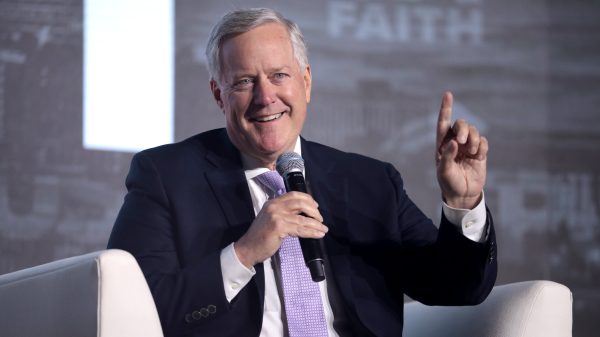By Chip Brownlee
Alabama Political Reporter
MONTGOMERY—State Auditor Jim Ziegler is questioning Gov. Robert Bentley’s decision to hold a special election in November 2018 for US Sen. Jeff Sessions’ Senate replacement. On Wednesday, Ziegler sent Bentley a letter highlighting his concerns.
In his letter, Ziegler asked Bentley to reconsider the 2018 Special Election date, which will fall nearly 22 months after the time when Sessions’ replacement is expected to be appointed.
Bentley told a pool of reporters with him in Montgomery last week that he would set the Special Election to replace Session for November 2018. Yasamie August, his communications director, confirmed the date and said Bentley has yet to decide who he will appoint as Sessions’ temporary replacement.
According to August, waiting another year and allowing the temporary replacement to serve more than two years will save the State money and give more citizens the opportunity to voice their opinion on who should be Sessions’ long-term successor.
“There are two main reasons for waiting until 2018,” she said. “The first is that it will save millions of dollars according to the Secretary of State’s Office due to the costs associated with conducting a statewide primary and general elections. Secondly, special elections generally have a lower voter turnout of around 25 percent, so the Governor determined it is best to have the Special Election coincide with the 2018 General election.”
Ziegler, who was elected as State Auditor in 2014, said Bentley’s scheduling is in violation of Section 39-9-8 of the Code of Alabama.
The section of the code, which is 155 words long and governs the filling of US Senate vacancies, sets out vague guidelines for when the Governor must schedule a special election to select a long-term elected Senator.
According to the code, the governor must “forthwith order an election” if a Senate vacancy occurs more than four months before the next regularly scheduled general election. The next regularly scheduled General Election is in 2018.
The State’s decades-old constitution and laws on Senate vacancies, which are vague like many other Alabama provisions, do not set a specific timeframe other than “forthwith” for when an appointment must be made or when a special election should be called to select a long-term replacement.
The code goes on to say that “if a vacancy occurs within four months of, but more than 60 days before, a general election, the vacancy shall be filled at that election.”
Ziegler said Bentley’s selected date for November 2018, nearly two years from now, is in violation of both portions of Section 36-9-8.
“Your proposed setting of the special election violates the plain [meaning] of this provision,” Ziegler wrote to Bentley. “The expected vacancy will be about 22 months before the 2018 general election. This time period is nowhere near the four months specified.”
President-elect Donald Trump selected Sessions as his nominee for US Attorney General in November. Sessions began his confirmation hearings on Tuesday and the hearings continued into Wednesday afternoon. Sessions is expected to be confirmed, despite harsh testimony from his colleague Sen. Cory Booker (D-New Jersey) and Civil Rights icon Rep. John Lewis (D-Georgia).
If Sessions is confirmed this month, Bentley has said he would quickly make an appointment. Ziegler believes there is too much time between January 2017 and Bentley’s November 2018 Special Election date.
Bentley’s choice of 2018 is in violation of the Code, Ziegler said.
“The term ‘forthwith’ has been judicially interpreted in other contexts to mean immediately or as soon as reasonably practicable,” Ziegler wrote to Bentley. “Your announced intention to schedule the special election 22 months from now does not meet any definition of ‘forthwith’ anywhere in any case.”
In addition to questioning the legality of Bentley’s schedule, Ziegler also said he isn’t confident in Bentley’s justification for selecting the 2018 date, which is that it will save the state $16 million.
Instead of scheduling a special election for the Senate seat on its own, Ziegler suggested that the Governor could pair the Senate election with local referenda or other special elections for the state legislature.
“The 2017 Regular Legislative Session starts Feb. 7,” he wrote. “There is a possibility that measures will pass that require statewide referendums of voters. Those referendums can be set on the same date as the US Senate special election. The inclusion of a special US Senate election on the same date as a statewide referendum would have only a small incremental cost.”
Ziegler believes Bentley selected the date based on political advice, not legal advice, and said the cost for holding a special election has been exaggerated.
“The use of the $16 million cost figure for a US Senate Special Election appears to be an exaggerated claim and assumes no other selections could be on the same date,” he wrote.
The Governor has interviewed twenty state and federal officials and a businessman as possible contenders for the interim appointment. Among them: Attorney General Luther Strange, several US representatives and state senators. All interviewees are current or former Republican office holders, aside from businessman Tim James.
Bentley told reporters on Thursday that he would keep his selection a secret until Sessions’ is confirmed and formally resigns, at which point Bentley will announce his appointment.




















































